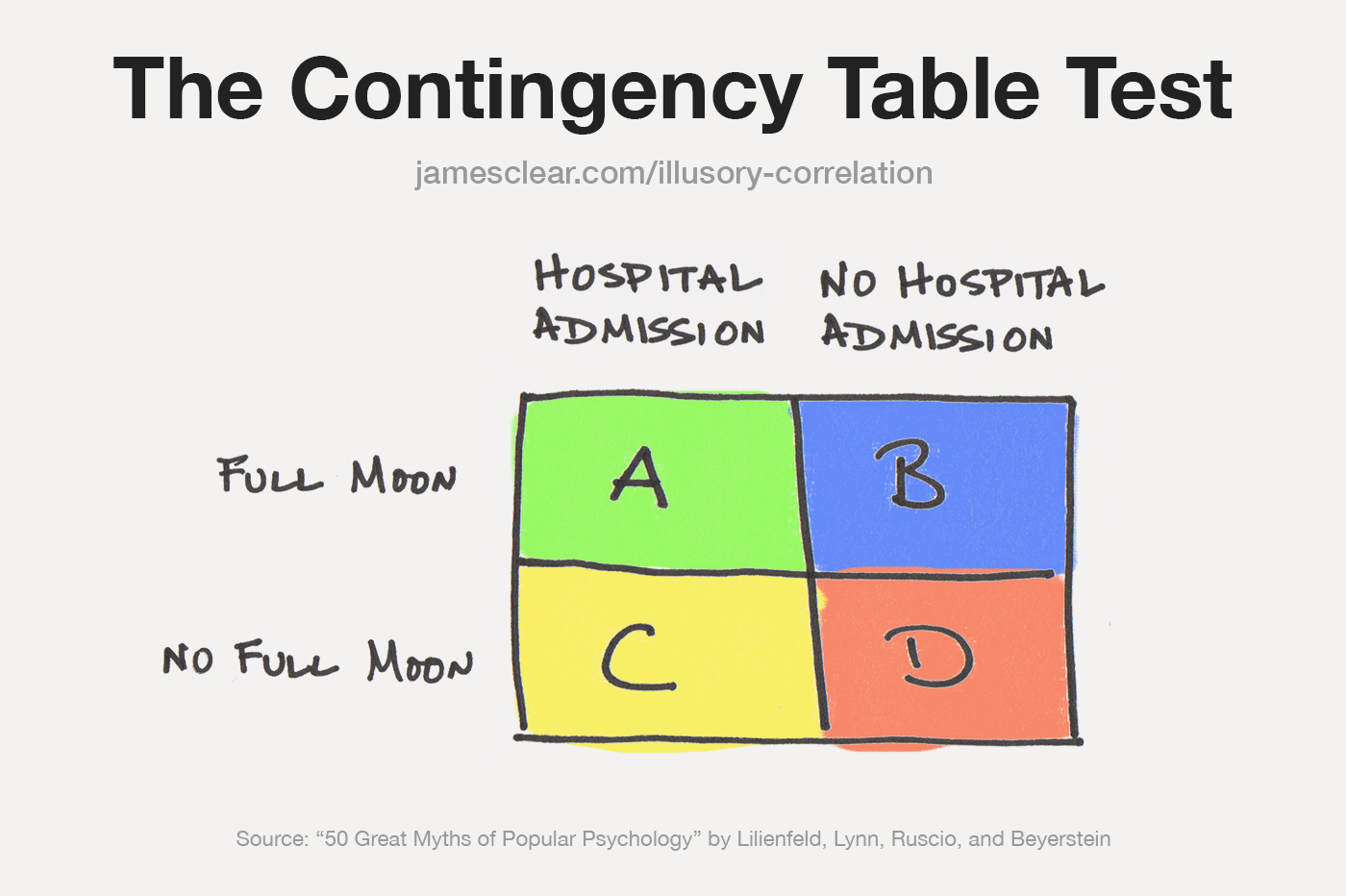- MOC : [[PSYCHOLOGIE]]
- Source : https://jamesclear.com/illusory-correlation
- Auteur : [[James Clear]]
***
=> [[Biais cognitif]]
An illusory correlation happens when we mistakenly over-emphasize one outcome and ignore the others.
Hundreds of psychology studies have proven that **we tend to overestimate the importance of events we can easily recall and underestimate the importance of events we have trouble recalling.** The easier it is to remember, the more likely we are to create a strong relationship between two things that are weakly related or not related at all.
There is a simple strategy you can use to [spot your hidden assumptions](https://jamesclear.com/common-mental-errors) and prevent yourself from making an illusory correlation. It’s called a contingency table and it forces you to recognize the non-events that are easy to ignore in daily life.
**Ideally, you would plug in a number into each cell so that you can compare the actually frequency of each event, which will often be much different than the frequency you easily remember for each event.**

## Exemple :
J'ai eu des problèmes d'alcoolisme (appelons un chat un chat).
Pendant longtemps, j'étais persuadé que ma consommation était très raisonnable. En y réfléchissant, j'arrivais à me souvenir facilement de quelques soirées passées au sec, qui me confimaient que je n'avais pas de problème avec l'alcool.
J'ai fini par me faire un fichier très simple pour comptabiliser la quantité de verres d'alcool consommés par semaine.
Après 28 jours de test, j'ai réalisé que j'en étais à facilement 50 verres par semaine AU MINIMUM, sans compter ceux dont je ne me souvenais peut-être pas.